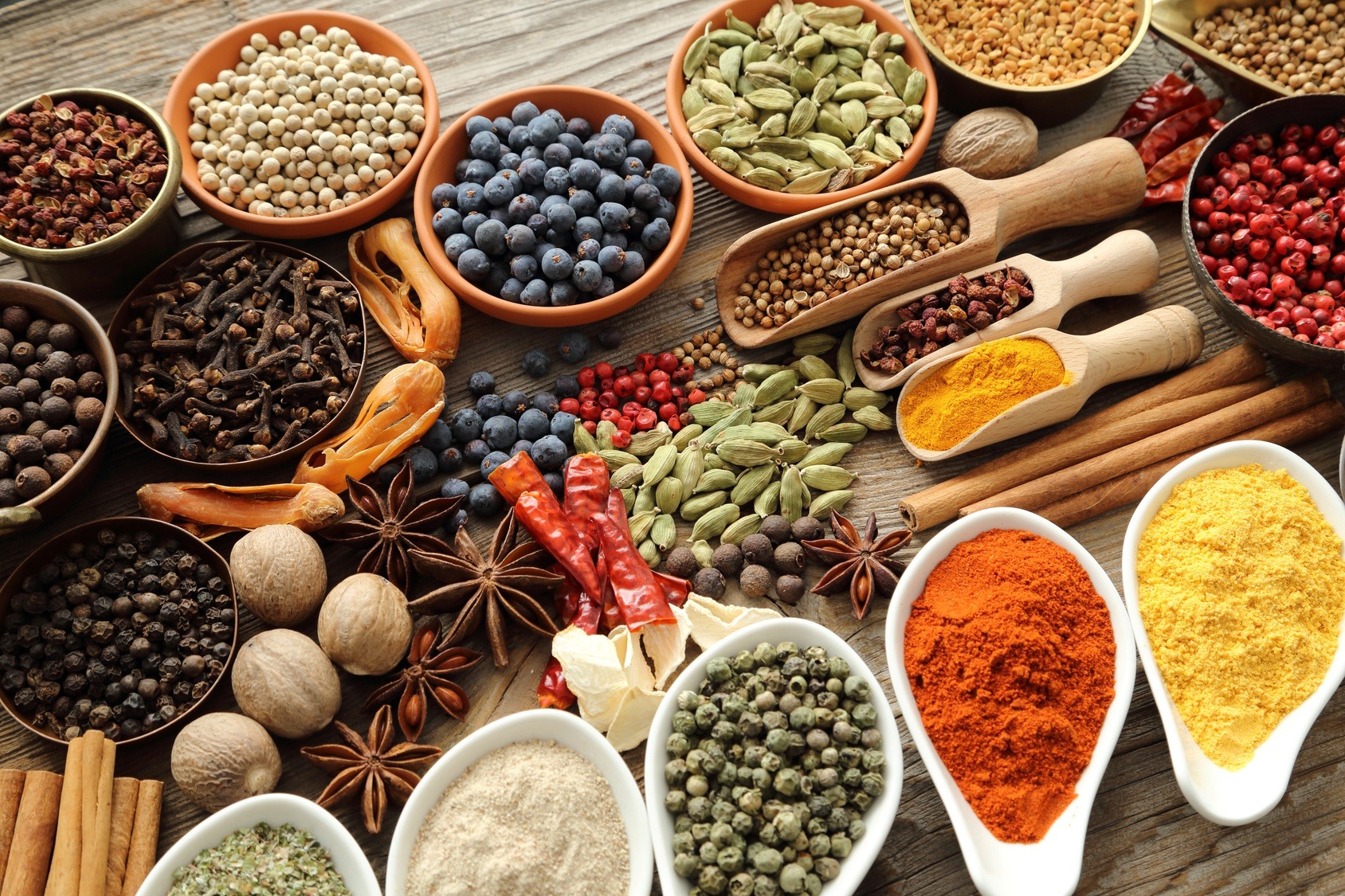For thousands of years, spices have played a remarkable role in human history. They were once a major driver of the global economy, and a cornerstone of natural healing all over the world. The search for spices drove explorers to new lands, new worlds were discovered thanks to the spice trade, and kingdoms were won and lost over these fragrant treasures.
It was not so long ago that people were paying for their housing with peppercorns, and trading goods for cinnamon, which was used as money before we used coins or bills. History is richly infused with examples of just how prized these spices were in ancient times. In ancient Mesopotamia, the Babylonian religion mentions a moon god who presided over medicinal plants. In ancient India, surgeons in the 4th century BC used white mustard and sesame in medical procedures.
In the early days of the Roman Empire, spices were supplied from the region then known as Arabia. Merchants refused to reveal the sources of their spices, which included cinnamon and cassia, so as to keep their prices high. During the early Middle Ages, before the time of the Crusades, a pound of ginger was worth as much as a sheep. A pound of nutmeg was equal in value to seven oxen, and a pound of saffron could be traded for a horse.
In Eastern Europe, peppercorns were used to access trading, to pay rent, and to pay taxes. They were even given as dowries for marriage. Well into the 1500s, the price of peppercorns in Europe was an accurate gauge of how business was doing in general. When Marco Polo wrote about his travels through Asia, he went into great detail about spices, including ginger, cassia, sesame, cinnamon, and pepper. The influence of his writings is anecdotally linked to a rise in international spice trade following his travels.
The list goes on, but it’s clear even from these few examples that spices helped shape the world as we know it in a multitude of ways. Today, we take for granted those three-inch round bottles in the pantry: it’s hard to believe that wars were once fought over the powder inside them.
It’s time to start paying more attention and giving more respect to spices, and to honor them for what they are: powerful tools in the quest to be healthier. Along with being a delicious way to make your recipes shine, spices are a great way to get antioxidants, phytochemicals, and other healthy active ingredients into your system. Each spice has it’s own unique profile of bioactive compounds, and getting a variety of them into your diet can do your body a world of good.
Want some evidence? In 2012, researchers at the University of Florida in Gainesville performed a very interesting study, which was published by the Journal of the American College of Nutrition. In this study, the researchers looked at the impact of spice consumption on DNA repair.
In most spice studies, study participants eat spices, then researchers measure compounds in the blood to determine absorption. This study took things a step further. After a week of participants eating specific spices, researchers drew their blood, damaged the white blood cells in a lab setting, and measured not only how well the spices were absorbed, but also the degree to which they could prevent DNA damage.
Results showed that cloves, turmeric, rosemary, ginger, paprika, sage, and cumin helped to protect DNA from damage. The researchers also found that ginger helped reduce all three inflammatory biomarkers tested. Additionally, ginger, turmeric, and rosemary were found to offer cells oxidative protection, and protect against inflammation.
This is a highly significant finding. As Dr. Michael Gregor aptly observed:
“And remember, they weren’t dripping the spices themselves on these human white blood cells, but the blood of those who ate the spices. So the results represents what might happen when cells in our body are exposed to the levels of spices that circulate in our bloodstream after normal daily consumption — not megadoses in some pill. Just the amount that makes our spaghetti sauce, pumpkin pie, or curry sauce taste good.”
So, the verdict is in: eat more spices to protect your health! I hope you’re as interested in spices as I am, because I plan to cover individual varieties in much more detail soon. Be on the lookout for more information about spices, including how to use them, and incorporate them into your life. There is much more to come!
– Dr. Joshua Levitt









